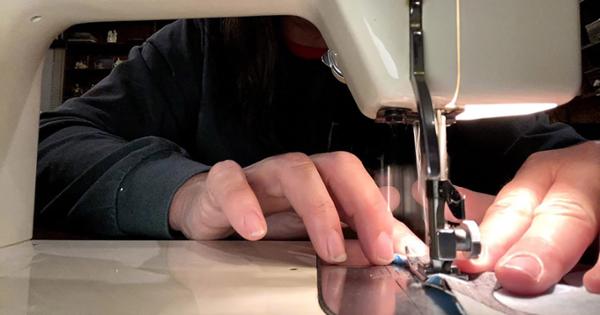JOHNSON CITY, Tenn. (Jan. 6, 2022) – With the omicron variant sweeping the globe, COVID-19 continues to make headlines.
Flashback to March 2020, when news about the virus was spreading rapidly, women in
Appalachia were gathering information about prevention efforts and acting quickly
with what resources they had. These women provided homemade masks for themselves,
their families and the community.

That’s according to East Tennessee State University professors Dr. Melanie B. Richards
and Dr. Mildred F. Perreault, who have provided important analysis when it comes to
health communication.
Their findings, featured in “Survive & Thrive: A Journal for Medical Humanities and Narrative as Medicine,” were published in 2021. Interviewing 15 women between March and August 2020, the
study helps researchers better understand the individual and social aspects of mask-making,
as well as mask advocacy during the pandemic.
“Our findings,” wrote Richards and Perreault, “support that mask-making and the sharing
of narrative images during this time period established feelings of self-efficacy
within a chaotic environment, allowed them to express their identity within the crisis
and provided an opportunity for both public health advocacy and community care through
craft.”
Both professors are members of the Department of Media and Communication at ETSU. Richards, associate chair of the department, is a co-author of the department’s
published work on an experiential approach to teaching and student learning, the Applied Marketing & Media Education Norm.
Perreault, an assistant professor, has expertise in local journalism and crisis communication
and is the advisor to the department’s student-led regional publication, “Overlooked in Appalachia.” She has two recent publications related to journalism and COVID-19: “Journalists on COVID-19 Journalism: Communication Ecology of Pandemic Reporting” and “Metajournalistic Discourse as a Stabilizer within the Journalistic Field: Journalistic
Practice in the Covid-19 Pandemic.”
 Stout Drive Road Closure
Stout Drive Road Closure